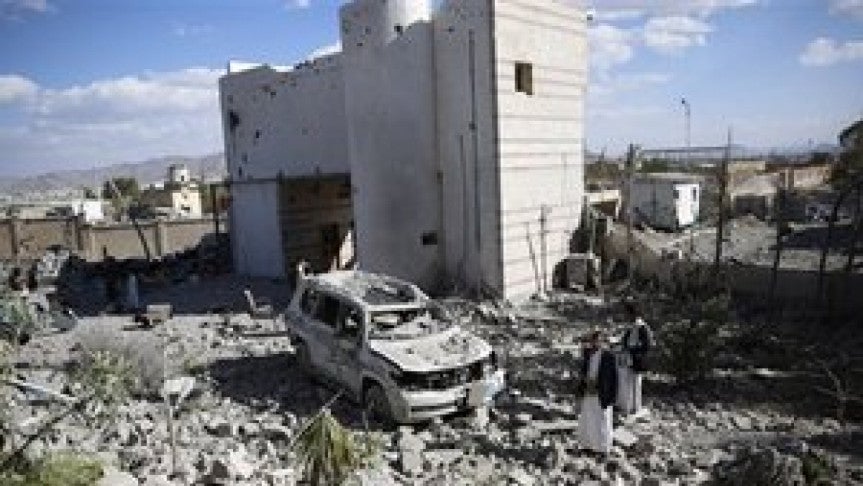Saudi-led coalition denies cluster bomb use in Sanaa

Riyadh, Saudi Arabia: The Saudi-led coalition bombing rebels in Yemen denied Sunday renewed accusations of dropping cluster munitions in the country after UN chief Ban Ki-moon said their use may be a "war crime".
Coalition spokesman Brigadier General Ahmed al-Assiri told AFP that the alliance "denies using cluster bombs in Sanaa", the Yemeni capital.
He was responding to a report issued Thursday by the US-based Human Rights Watch (HRW), which quoted Sanaa residents describing a January 6 attack consistent with airdropped cluster bomb use.
Assiri said the coalition has admitted to previously using CBU-105 cluster bombs against rebel vehicles.
"Now they don't have any more vehicles so we don't use it," he said.
He described HRW's report as "very weak", adding that "they didn't show any evidence."
Assiri said the coalition didn't possess the specific munition detailed in the report, adding that 90 percent of coalition operations in Sanaa are directed against Scud missile launchers.
"You cannot use a cluster bomb against Scud launchers," Assiri said. "We have nothing to hide."
There has been widespread international concern about the high number of civilian casualties in Yemen.
The Saudi-led coalition has been supporting Yemeni forces since March against Iran-backed Huthi rebels and their allies, who seized territory from the internationally-recognised government.
Cluster bombs contain multiple submunitions, which sometimes do not explode and become de facto landmines that can kill or maim long after they were dropped.
The weapons are prohibited by a 2008 treaty adopted by 116 countries, but not by Saudi Arabia, its coalition partners, or the United States.
On Friday UN chief Ban said he had received "troubling reports" of cluster bomb attacks in Sanaa.
"The use of cluster munitions in populated areas may amount to a war crime due to their indiscriminate nature," he said in a statement.
The office of the UN high commissioner for human rights said last week that its staff in Yemen had found remnants of 29 cluster bombs during a field visit to Yemen's Haradh district.
In its report, HRW showed a picture of what it said were BLU-63 submunitions from a CBU-58 cluster bomb.
Assiri called the report unprofessional and said the rights group did not contact the coalition.
"They collect information, I think, from the Huthi side," he said, referring to rebels.
"Showing this kind of photo doesn't mean it is in Sanaa (and) doesn't mean it is from the coalition."
Assiri said the coalition has been targeting missile launchers which have fired "indiscriminately" on the Saudi border regions of Jazan and Najran.
Around 90 civilians and soldiers have died from shelling and skirmishes in Saudi border regions since March when the coalition began air and ground action in Yemen.
More than 5,800 people have been killed in Yemen since March, about half of them civilians, according to the United Nations.

 AFP
AFP



